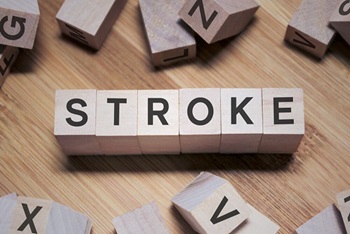Top Causes of Stroke
 With stroke making the list as the third leading cause of death in the United States, we tend to hear a lot about how to spot a stroke and what to do if you think someone is having one. So, let’s back up a little and look at the top causes of stroke and what you can do to minimize your risk.
With stroke making the list as the third leading cause of death in the United States, we tend to hear a lot about how to spot a stroke and what to do if you think someone is having one. So, let’s back up a little and look at the top causes of stroke and what you can do to minimize your risk.
Causes of stroke
There are two types of stroke: ischemic, when a blockage cuts off the blood supply to part of the brain, and hemorrhagic, when a blood vessel bursts, causing bleeding and swelling in the brain. Medical conditions that can lead to ischemic stroke include:
- Atherosclerosis: A buildup of plaque on the inner walls of the arteries, which reduces blood flow to the brain
- Embolism: A blood clot, which can travel through the bloodstream and get stuck in an artery
- Atrial fibrillation (AFib): A type of irregular heartbeat that can lead to clots inside the heart
- Diabetes: Excess blood sugar can cause blood clots and plaque deposits in the arteries
- Other heart and blood conditions that may lead to plaque buildup, hardening of the arteries or blood clots
Medical conditions that can increase the risk of hemorrhagic stroke include:
- High blood pressure: The force of the blood as it pushes against the artery walls - when it’s too high, it can damage blood vessels over time
- Aneurysm: A bulge, like a balloon, in an artery; it can stretch too far and burst, causing a bleed
- Arteriovenous malformations (AVMs): Arteries and/or veins in the brain that are tangled and don’t work normally
Lifestyle factors
In addition to medical risk factors, certain lifestyle choices can increase your risk of stroke:
- Excessive alcohol use
- Use of drugs like amphetamines and cocaine
- Smoking cigarettes
- Being overweight or obese
- Not getting enough exercise
- Unhealthy diet, especially one high in fat
- Overuse of nonsteroidal anti-inflammatory drugs (NSAIDs) like ibuprofen and naproxen
- Taking oral contraceptives or hormone replacement therapy (in women)
These lifestyle factors can mean even greater risk to people who already have medical conditions that increase their risk of stroke. Taking action now can have a real impact—talk to your health care provider about how you can make healthier choices to reduce your risk.
BayCare has a variety of services for stroke diagnosis, stroke treatment and stroke prevention. To learn more about stroke services available at our hospitals, call (888) 906-8935.
